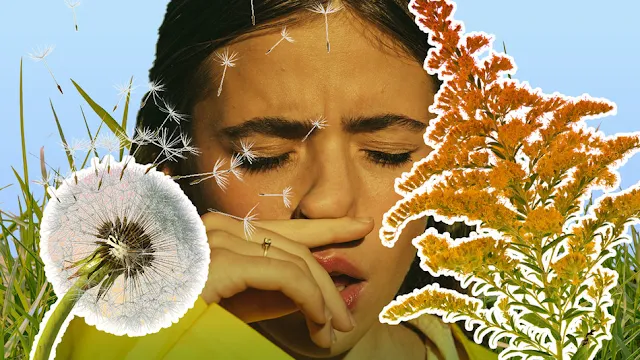The weather plays a significant role in our overall health and well-being, but it can also affect our skin in various ways. For individuals with sensitive skin or allergies, certain weather conditions can trigger allergic reactions that manifest as skin allergies. In this article, we will delve into common skin allergies caused by the weather and provide tips on managing and preventing them.
1. Pollen Allergies
For many people, spring brings a surge of pollen in the air, leading to seasonal allergies, also known as hay fever or allergic rhinitis. In addition to affecting the respiratory system, pollen can also cause allergic reactions on the skin. Common allergy symptoms include:
- Skin irritation: Itchy skin, redness, or rash can occur when pollen comes into contact with the skin.
- Allergic contact dermatitis: Some individuals may experience contact dermatitis, characterized by red, itchy, or inflamed skin, when they touch plants or flowers containing allergenic pollens.
To help manage pollen allergies
- Stay informed: Monitor pollen forecasts and try to plan outdoor activities on days when the pollen count is lower.
- Limit outdoor exposure: On high pollen days, try to stay indoors as much as possible, especially during peak pollen hours (typically early morning and late afternoon).
- Wear protective clothing: Cover your skin with long-sleeved shirts, pants, and a hat to minimize direct contact with pollen.
- Rinse off: After spending time outdoors, take a shower and wash your clothes to remove any pollen that may have adhered to your skin or clothing.
2. Cold Urticaria
Cold urticaria is an allergic reaction to cold temperatures, leading to the development of hives or welts on the skin. Exposure to cold air, cold water, or even consuming cold food or drinks can trigger this condition.
Symptoms of cold urticaria may include:
- Itchy, swollen hives: Typically, the skin affected by cold urticaria becomes red, itchy, and raised.
- Burning or tingling sensation: Some individuals may experience discomfort, burning, or tingling in the areas exposed to cold temperatures.
To manage cold urticaria:
- Avoid cold exposure: Minimize exposure to cold air or water and protect your skin by wearing warm clothing and gloves.
- Gradual temperature changes: If you need to be in a cold environment, gradually expose your skin to the cold to minimize the severity of the reaction.
- Antihistamines: If your symptoms are severe, consult a healthcare professional who may recommend antihistamines or other medications to alleviate symptoms.
Read also: Dermatitis, Rosacea, Psoriasis, and Eczema: Understanding the Differences
3. Photosensitivity
Photosensitivity refers to a heightened sensitivity to sunlight or certain types of artificial light. This condition can be caused by medications, skin disorders, or underlying health conditions.
Symptoms of photosensitivity may include:
- Sunburn-like rash: Even minimal sun exposure can result in a red, itchy rash or sunburn-like symptoms.
- Skin discoloration: Areas exposed to sunlight may appear darker, and skin pigmentation may become irregular.
To manage photosensitivity
- Wear protective clothing: Cover your skin with clothing that offers UPF (ultraviolet protection factor) and wide-brimmed hats to provide shade and limit direct sun exposure.
- Apply broad-spectrum sunscreen: Use a sunscreen with a high SPF (30 or above) and reapply frequently, especially if spending extended periods in the sun.
- Seek shade: Stay in shaded areas during peak sun hours and take breaks indoors if necessary.
Read also:
- Skin Disorders Caused by the Weather: Understanding and Managing Seasonal Skin Conditions
- Skin Disorders and Climate Change: How Environmental Factors Affect Our Skin
- The Impact of Stress on Skin Disorders: Exploring the Mind-Skin Connection
Understanding the triggers and symptoms of weather-related skin allergies is crucial for effective management and prevention. It is also essential to consult a healthcare professional or dermatologist if you have recurrent or severe allergic reactions to determine the specific cause and receive appropriate treatment options. With proper care, you can enjoy the outdoors and experience fewer allergic reactions, ensuring healthier and happier skin all year round.




Post a Comment
Full Name :
Adress:
Contact :
Comment: